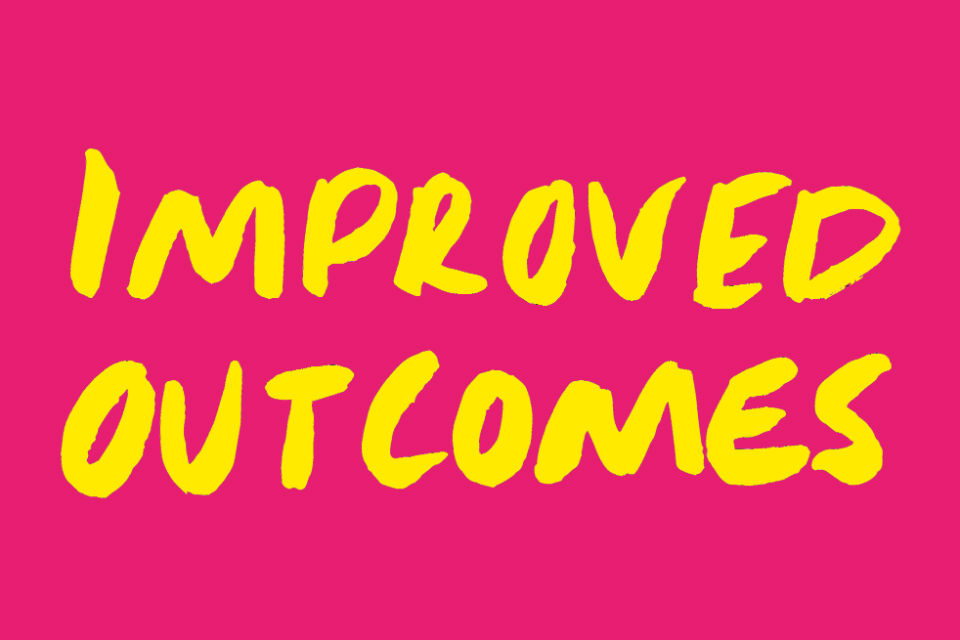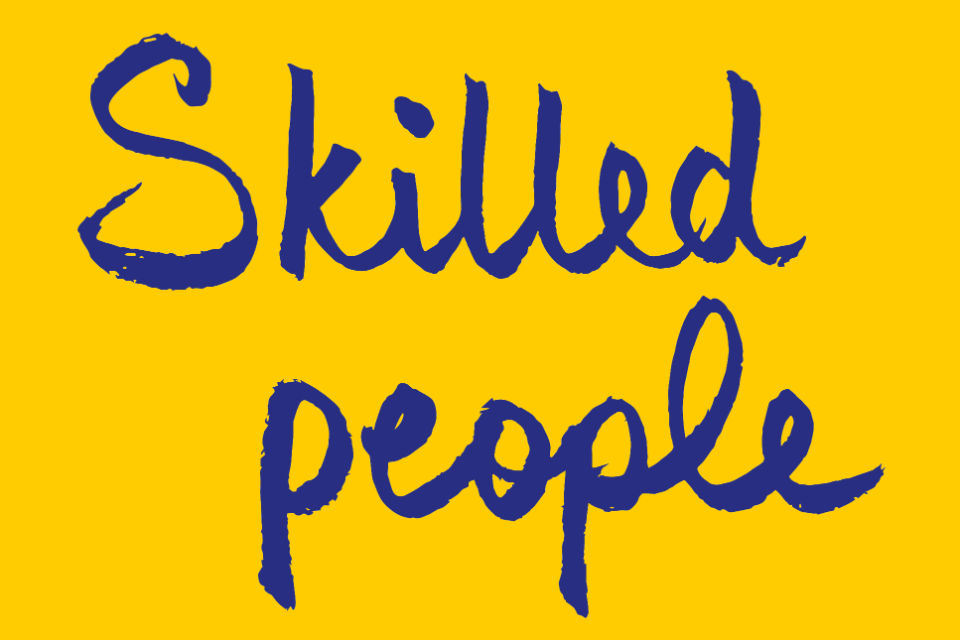
Digital capability is a challenge for the whole of government. In October 2015, John Manzoni, Chief Executive of the Civil Service, said of digital capability: “We have nowhere near enough. I’ve watched big organisations struggle with this for years. It’s hard to do in government, too – but we can’t shy away from it. We need to be absolutely at the forefront of that.”
As Executive Director, Digital, Technology and Data, at the Department for Business, Energy & Industrial Strategy (BEIS), I think about this challenge everyday. I see it as a vital for any organisation, but never more so than when that organisation is going through substantial change.
 BIS, my old department, has merged with DECC to create BEIS. This means we must meet the challenge within leaner budgets and under the pressure of a bringing two policy portfolios and more than 40 partner organisations together. We have to build up our skills in a sustainable, flexible way. We need to make digital capability and the ability to use technology to design and deliver improved outcomes the backbone of our policy approach.
BIS, my old department, has merged with DECC to create BEIS. This means we must meet the challenge within leaner budgets and under the pressure of a bringing two policy portfolios and more than 40 partner organisations together. We have to build up our skills in a sustainable, flexible way. We need to make digital capability and the ability to use technology to design and deliver improved outcomes the backbone of our policy approach.
In order to be ready to respond to, shape and lead the delivery of the Government’s agenda, we need to follow four basic principles:
- multidisciplinary
- transparency
- iterative development
- data-driven
This applies equally to ‘purer’ policy and legislative questions and to building transactional services for citizens. Digital capability has a role to play in helping policy teams be more flexible, gather, share and manage knowledge, and reach workable solutions more quickly and effectively. If we only focus on the skills in digital teams, we're missing a huge opportunity to transform the way we work across the whole Civil Service.
Fear of losing out
There are no quick fixes for doing this well. In my various roles across the Civil Service, I’ve come across some worrying preconceptions. Sometimes there’s a concern that developing civil servants means they will leave. That’s especially true of digital and technology, where many companies are clamouring for talent. But I think it’s far more worrying if we don’t develop people and they stay. Our users demand better-quality services, designed around their needs and delivered at an economical price. If we don’t cultivate and grow our people we will struggle to achieve this.
Finding the talent in-house
One of the principles we proceeded from is that there are hundreds of civil servants capable of being the digital delivery specialists and leaders of the future. Some of them already work in roles they might consider ‘techy’, but lots don’t, doing jobs in policy, HR or science, for example.
We have been testing various ways of getting better at finding and harnessing what’s under our noses.
Just because you’re reading this blog post doesn’t mean you’re confident with digital and its terminology. Do you know the difference between an alpha and a beta, a delivery manager and a product manager? Our research showed that many civil servants don’t. The different languages of Civil Service professions can act as a barrier, often putting people off moving between professions.
There’s evidence for this in all sorts of areas. People from outside government thrown by the competency-based recruitment process, policy and analytical experts mystified by ‘agile’ terminology, technical specialists confounded by the idea of a ‘submission’.
Capability is in delivery
Many of these challenges are common across government. We have been working alongside other departments with Government Digital Service and the Cabinet Office to help co-ordinate central responses to some of them. Over the last six months we’ve looked at the ‘capability journey’ from recruitment to leadership training. We have:
- established the size and skills in the group’s existing digital and technology workforce, mapped to a cross-government skills classification
- benchmarked pay data to support a future business case on pay and reward
- put 12 generalist civil servants on full-time specialist skills transfer placements
- identified a pool of skills transfer candidates across BEIS
- built and tested skills transfer diagnostic and measurement tools
- rewritten specialist job descriptions and adverts
- trialled new specialist recruitment and assessment processes
- put in place 5 interim heads of profession to create and lead expert communities of practice across the group
- sent more than 20 senior civil servants on a three-day DWP Digital Academy pilot course; creating an action learning set with members from 11 different organisations within BEIS
The biggest thing we’ve learned is that successfully building capability is all about delivery: getting the right people with the right support working on the right thing. Capability isn’t all about reviews and reports - although analysis and evidence is critical. It’s about helping to deliver great policy and services for users.
 You can build knowledge in a classroom, but you can’t build intuition and deep confidence. For that, you need to be using new-found skills for real. You can develop someone into a great user researcher or content designer, but you can’t keep them unless you put them in the right environment with the right rewards.
You can build knowledge in a classroom, but you can’t build intuition and deep confidence. For that, you need to be using new-found skills for real. You can develop someone into a great user researcher or content designer, but you can’t keep them unless you put them in the right environment with the right rewards.
One of my favourite quotes over the last few months is from someone working as a skills transfer user-researcher in a research council. He said, “it didn't take very long for me to be given real responsibility... I am making a genuine contribution to the team”.
How often do you hear that said about a training course? I hope it’s said a lot more in the future.
If you’re interested in our work on building capability for your own department, or in a digital and technology skills transfer role, please get in touch with Paul Turner.

12 comments
Comment by Adam posted on
This is the public sector. If you want private industry salaries then leave. What some have suggested is two tiers of pay; one for 'specialists' that match market rate while generalists should be forced to live off the crumbs of the pay award because their pay will be reduced to make up for any enhancements 'specialists' get. Two points: we should all be in this together and salaries should be raised by the same percentage for all as otherwise resentment will cause a divide and poorer collaboration and secondly generalists' level of IT skills is rising all the time and I doubt that there is a meaningful disctinction between 99% of them. For the 0.5% of real 'specialists' then a local pay enhancement should be the answer.
Comment by Bill Phillips posted on
Do you realise that the MOD is currently introducing a system that runs Vista?
As I have pointed out before there is reluctance by the Civil Service to recognise technical skills. Just look at the competence; either you are a manager or you are nobody. We have got to grasp the concept of qualification pay. Note that I have also seen disasters where someone has been given a managerial grade because of his technical qualifications and has tried to manage.
Comment by Kash posted on
Sounds like a very positive approach. However as stated above, the salaries for IT/Digital professionals within the Civil Service is about 25% less than private companies. Once people get free, very expensive training, and with a Govt Dept on their CV, they'll be on their way to work for another org. Same work, more money.
I think the solution to this problem is to increase the pay packet but also provide additional benefits not found elsewhere, maybe working from home, latest gadgets like surface pros..
Comment by Dele posted on
I do agree with you Dan, especially with access to so much information online, one wonders whether it is a lack of will for self development or refusal to accept change.
For Adrian's information in particular; Iterative/incremental development is a methodology of software development that divides a project into small workable packages called releases.
The main idea of iterative development is to create small projects that have a well-defined scope and duration and constantly do builds and updates as soon as possible, so that you have regular and traceable successes instead of a "big bang" finish that would generally have larger resource implications with regards to staff, costs, etc. This way benefit realisation is frequent and visible.
Comment by Dan Wintercross posted on
The alarming thing is that you don't know what it means, all civil servants need to be up to speed otherwise we won't be delivering the services at the speed our users need.
Comment by Adrian posted on
iterative development? I have never in my 51 years heard of this "word" - is there such a word?
Emma - could you please explain what this word means? I thought the Civil Service was trying to move away from gobbledegook and use plain English....what next? "blue sky thinking"?
Please use plain English
Comment by Darrell posted on
Iterative development - there is such a term. Its a term used in IT to describe the development process of new systems. It's when new systems are developed 'bit by bit' (iterations) and then tested to ensure it meets the requirements of the end users. Once one 'bit' has been built successfully then the IT developers move onto a further iteration and build a bit more of the system 🙂
Comment by Emma Stace posted on
Adrian, thanks for taking the time to read my blog. I'm sorry you found the language unclear. We do try our best to use plain English. Here I am talking about continually improving products and services. Best wishes, Emma.
Comment by Dr Mary E Black posted on
Iterative development is used in software development. It is also a term used in Agile delivery which is all about creating fast iterations based on the feedback of users. In Agile methodologies, the shorter development cycle, referred to as an iteration or sprint, is time-boxed (limited to a certain increment of time, such as two weeks). Agile started out as an alternative approach to software development, but is now applied more widely to running other types of projects and products. Iterative development started out as a software term but is now used more widely. The GDS has some great links that explain it.
Iterative development has also long been used in research and evaluation, for example in public health, referring to developing something in small stages. It came in around the nineties as I recall but you frequently here in academia, applied to action based research or community based approaches to public health development. https://www.ncbi.nlm.nih.gov/pmc/articles/PMC2305639/
Comment by William (MOD) posted on
With respect Mrs Stace,
I have a few comments and issues with your article, mostly -
1. Data driven information communications does not improve the understanding of anyone other than the originator (if even them). For data to be useful - it has to be turned into information; in an understandable format; be with the relevant people; in the right place and at the right time.
Unless you do all of them - you only have 1s and 0s moving about.
2. Putting “12 generalist civil servants on full-time specialist skills transfer placements” does not make them specialists in any field, because some training takes years (for instance degrees and apprenticeships).
Plus – if the people are trained, why should they stay in the CS when they can get a 10% / 20%, or more, pay rise in industry?
3. You said that there have been discussions on the Civil Service having "benchmarked pay data to support a future business case on pay and reward".
Oh, how I agree with that statement.
But, under the current pay restraints it appears that there is little likelihood that you can recruit, reward and retain skilled qualified specialists (in any field).
We (the specialists in the Civil Service) need a truly INDEPENDANT study on pay and conditions between the CS and industry that the Government of the day will adhere to.
Only then can we have a start towards a Brilliant Place to Work.
Comment by Andrew posted on
HMRC certainly seem to have found a way to bypass the issues you've identified at point 3. They have set up a company called Revenue and Customs Digital Technology Services Ltd, to deliver technical and digital services to HMRC. The employees of RCDTS will not be classed as civil servants and will therefore not be subject to the same pay restrictions.
Comment by John posted on
William,
You are so 100% correct on all your observations.
Putting generalists into IT posts hardly ever pays dividends.
In my part of MOD, we are desparately short of skilled analyst/programmers but cannot recruit due to poor wages and terms and conditions of employment.